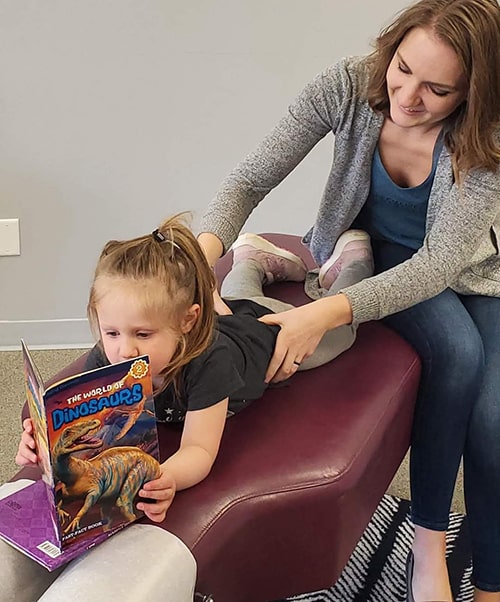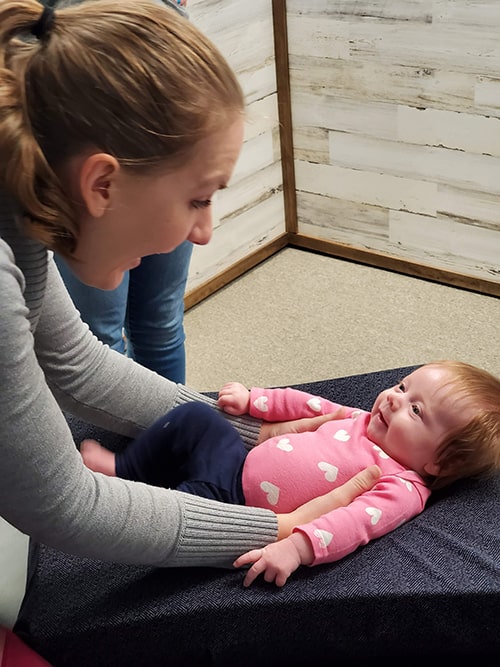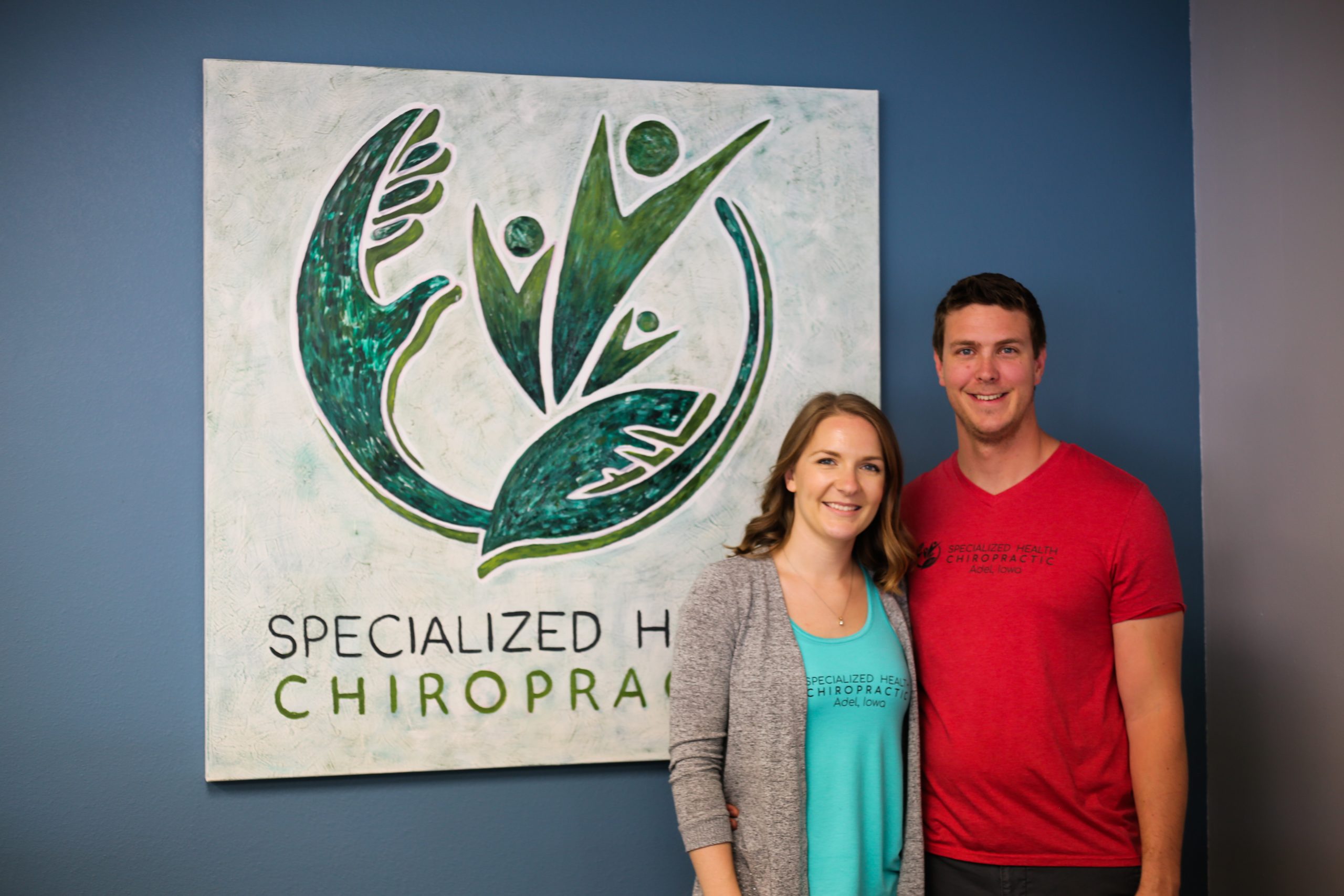Pediatric
Chiropractor
Common Childhood Stress Can Impact The Nervous System.
What kind of STRESS does a child go through??
The first and most common stress is physical stress, or trauma. Many parents immediately think of falls, bumps, and flips of the couch (“Mom look what I can do”) as the most common, but in reality the first physical stressors start much earlier. Research has found that it can begin during the prenatal or birth process.
Additionally, our lives are busier, our schedules packed with therapies, basketball games, dance classes, etc! Our food isn’t what it used to be. And unfortunately technology can cause its own set of issues. All of these stresses compound, leaving their developing nervous systems overwhelmed, unable to adapt, and stuck on the gas pedal.
What do you mean by the “gas pedal”?
We have found through neurological testing and research, that many children are stuck in what is called Sympathetic Dominance. This “gas pedal” is essentially the Fight/Flight response. However, when we are exposed to the Fight/Flight response so frequently at such a young age, the nervous system and brain become hard wired for that stress response, making it more difficult to overcome these daily stressors.
What does that Sympathetic Dominance look like in kids?
This can manifest in a variety of different ways, depending on the age and adaptation of the child. Later in childhood, we commonly see this in kids who struggle with ADHD or sensory processing disorders. But it can also look like developmental or speech delays, anxiety, temper tantrums, meltdowns, emotional instability, etc. Sometimes, it’s teachers that notice it first, as an inability to listen and follow directions, or outbursts during class. At home, it can look like temper tantrums, rough relationships with siblings, or even frequent “tummy aches” that can be a sign of anxiety.

*Evan’s Story.
Evan’s parents came in looking for answers. They were constantly getting calls home from school stating that he is disrupting class, having trouble focusing, and having defiant behavior.
Mom mentioned that they have been calling him Taz since he was little since he’s always been a little Tasmanian Devil. Mom and Dad didn’t feel that medication was right for him and their family and wanted to pursue help in a different way.
We did an initial exam on Evan and saw that his Nervous System was stressed out in a major way and there were a few barriers preventing him from acting and behaving in a more calm and organized way.
After seeing Evan for about 2 months, giving him specific and gentle chiropractic care to positively stimulate his Brain and Nervous System, Evan was awarded student of the month in his class! Mom said it definitely would not have been possible 2 months before!
Teachers were mentioning that his behavior had changed completely and that he was listening, paying attention, and being a role model student.
One of the best things about this story is that mom and dad no longer need to stress about negative calls home and can feel confident that Evan can focus in school and avoid falling behind.
Now on wellness care, it’s been so satisfying to watch him grow into a confident and polite young man, thriving in football, and getting great grades! We can’t wait to see what his future holds!


Infant Care.
Because the first initial physical stressors happen during, or before, birth, it is common to see infants struggling with the early signs of that Fight/Flight response. It’s especially common for moms who have been through prenatal care, for them to want their new bundle of joy to get checked immediately after birth, and even stop by on the way home from the hospital/birth center or request a home visit after a homebirth.
A 2015 study showed us how important it is for infants to get checked by a chiropractor, even seemingly healthy infants. “Incidence of Somatic Dysfunction in Healthy Newborns” looks at the likelihood that a newborn will have stress in their nervous system and spine. The doctors examined the spines of 100 healthy newborns, 51 males, and 49 females, all about 6 hours old. The study found that 99%, or 99 out of 100, of these newborns had at least one somatic dysfunction. The study also found that the number one correlating factor to the amount of spinal dysfunction found was labor time. The longer the labor, the more stress on the baby, leading to more dysfunctions. We chiropractors call this somatic dysfunction a subluxation.
Biggest take away: Almost every child born today needs to be seen by a chiropractor, so we can address their somatic dysfunctions or subluxations!

Infant Struggles.
These Infant struggles are NOT a Rite of Passage and they do not have to be part of your story!
- Colic
- GERD/Reflux
- Sleep issues
- Breastfeeding or latch issues
- Failure to thrive
- Constipation
- Diarrhea
- Tongue/Lip Tie Dysfunction
- Head Tilt
- Flat Spots/Plagiocephaly
- Crawling/Movement Delays
It is especially important that when getting your little ones checked by an Adel pediatric chiropractor, you seek out someone that has specific pediatric training and experience, as well as a child-friendly bedside manner! We want to assure you that we have done extensive education and training in infant and pediatric chiropractic and are passionate about caring for children as young as a few hours old!


*Lucas’s Story.
No more Colic for Lucas!
A few weeks after birth, cute baby Lucas started getting very fussy. He was crying for long periods at a time, spitting up excessively, not sleeping well, and generally looked so uncomfortable. It progressively got worse every day, and his amazing mama sought out more answers for her little one.
Together, we figured out very specific goals for little Lucas. We wanted to figure out what was causing his discomfort, how we can get him some relief, and what we could do to prevent it in the future.
We LOVED that because our goal is always to get to the cause of the problems you and your babies are facing. Emotional stress during pregnancy and physical stress during birth (no matter the type of birth – C-section, natural, cord-wrapped, etc!) both play a HUGE role in the developing nervous system of a baby.
Our scans showed exactly where and how much of that stress was in his nervous system. Then, together, we came up with a very specific plan to calm his nervous system.
For Lucas, gentle and calming stimulation to his nervous system made all the difference for his little body. Lucas’s mom says her little boy is now crying less, spitting up less, and sleeping a whole lot better. This cute little man is now full of snuggles and smiles and is well on his way to growing and thriving.
We understand that you may have more questions. We invite you to visit our FAQs page or contact us to set up a Complimentary Consultation to discuss your specific child’s needs and answer any and all of your questions!

Dr. Bryce & Dr. Taylor are excited to get you and your family on the path to greater health.
*To protect the privacy of our patients, names may have been changed.

